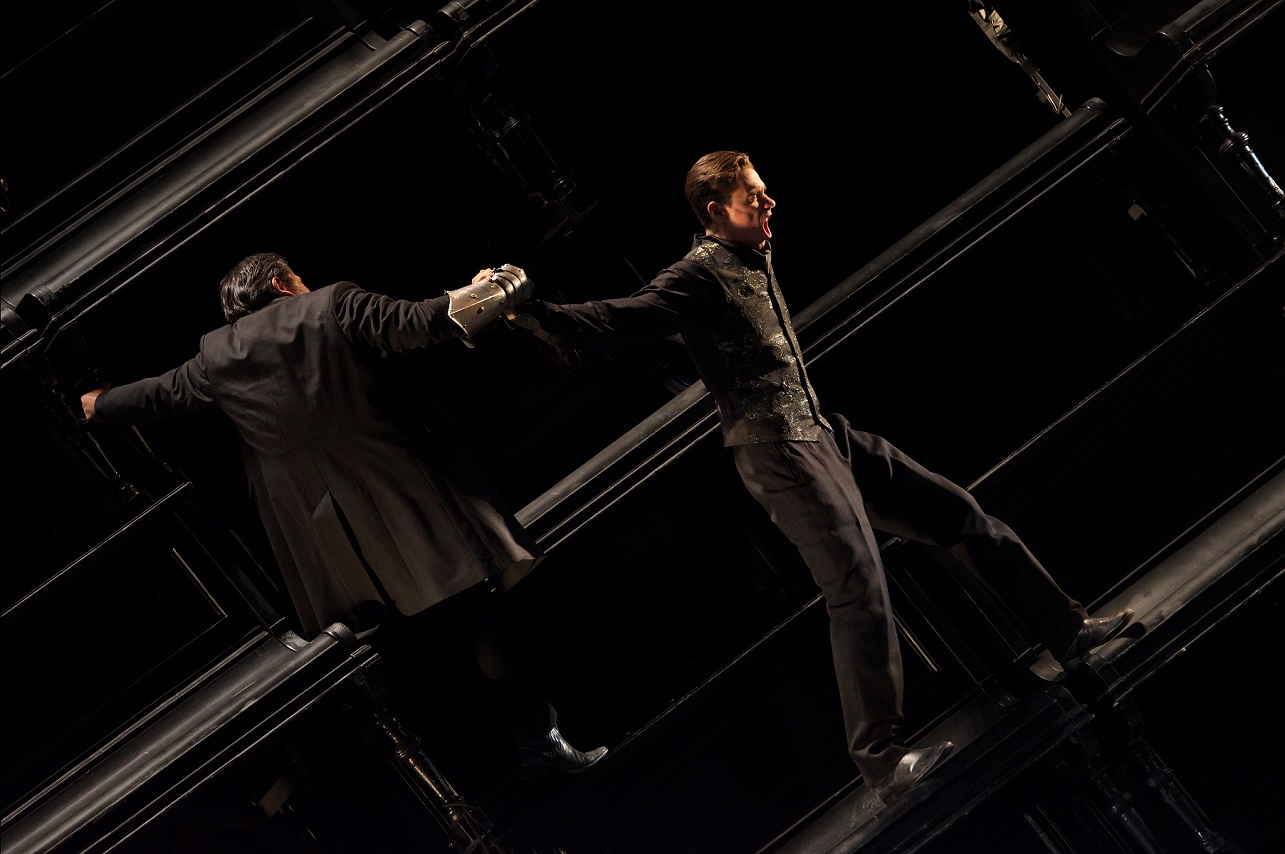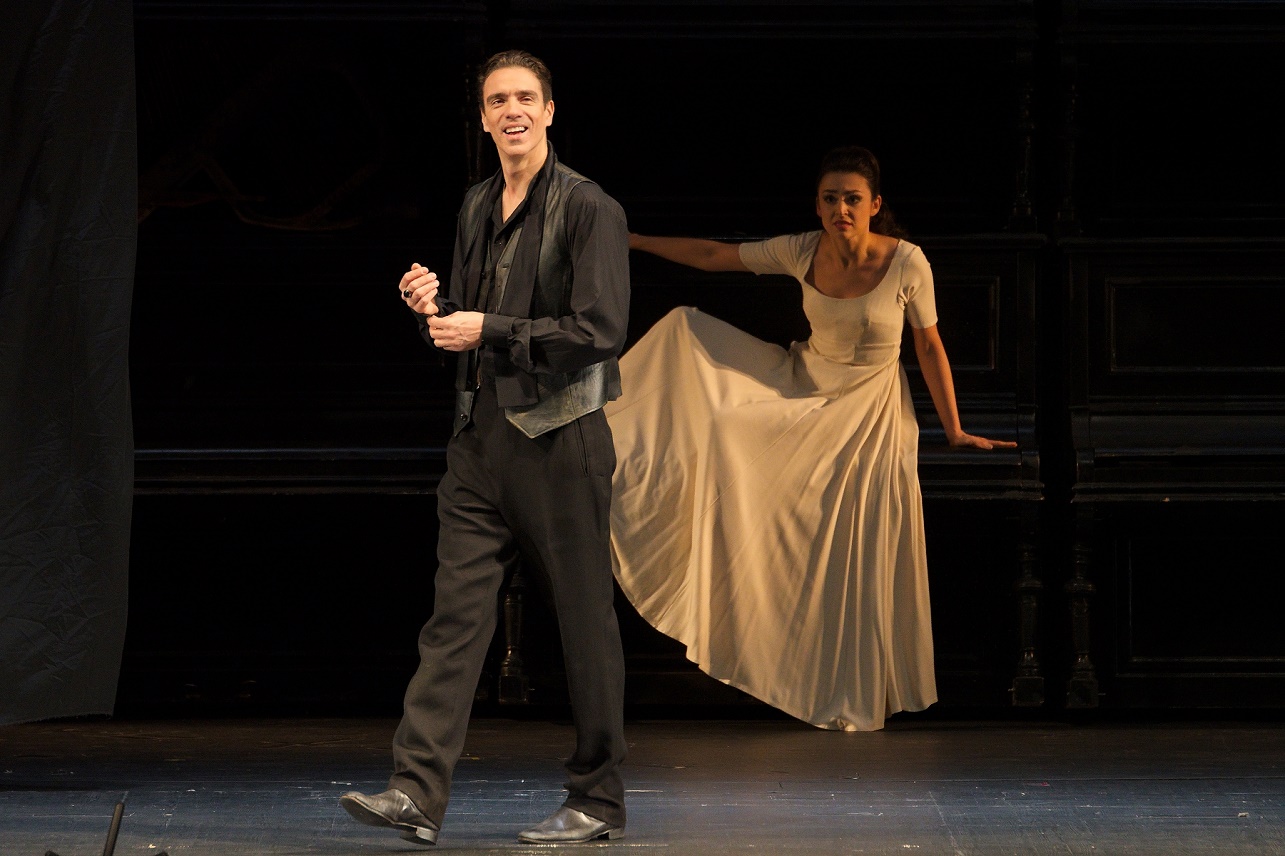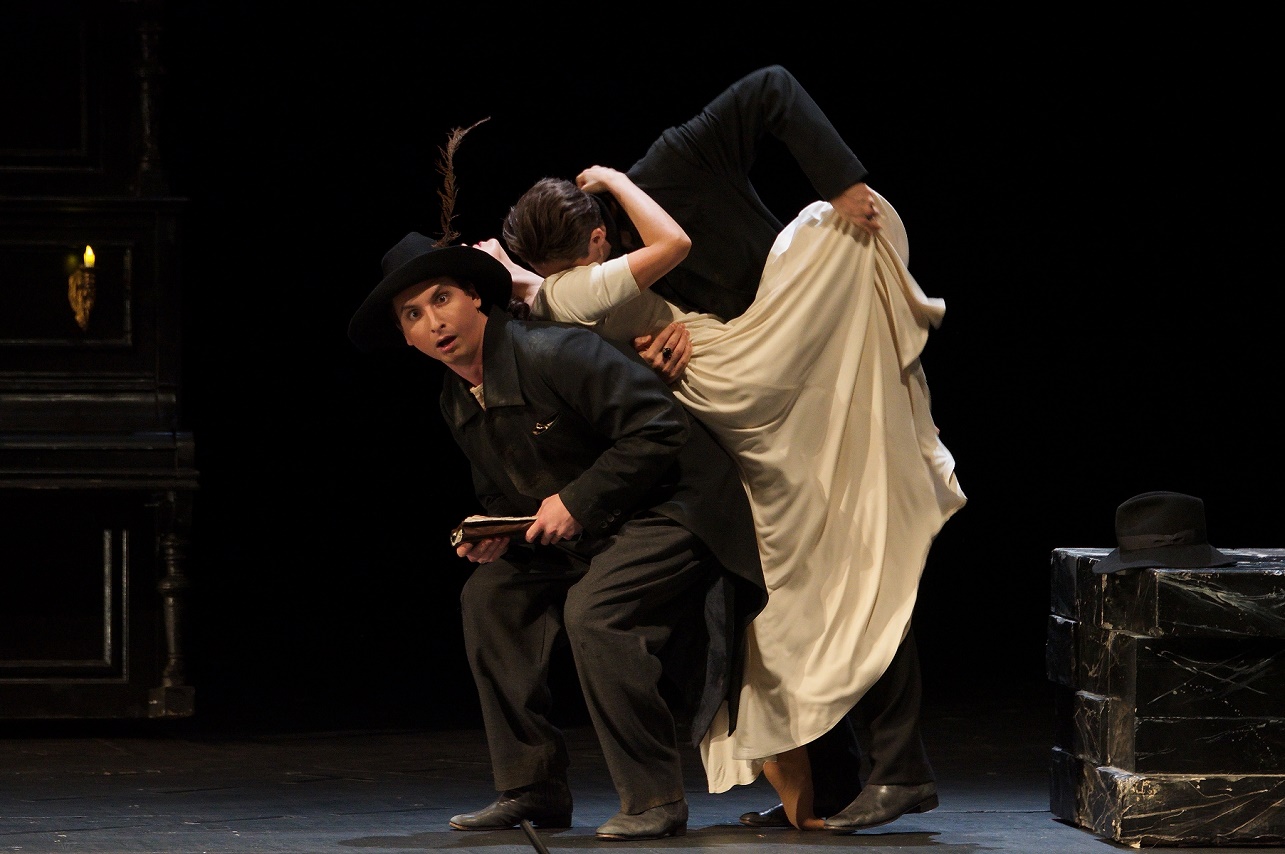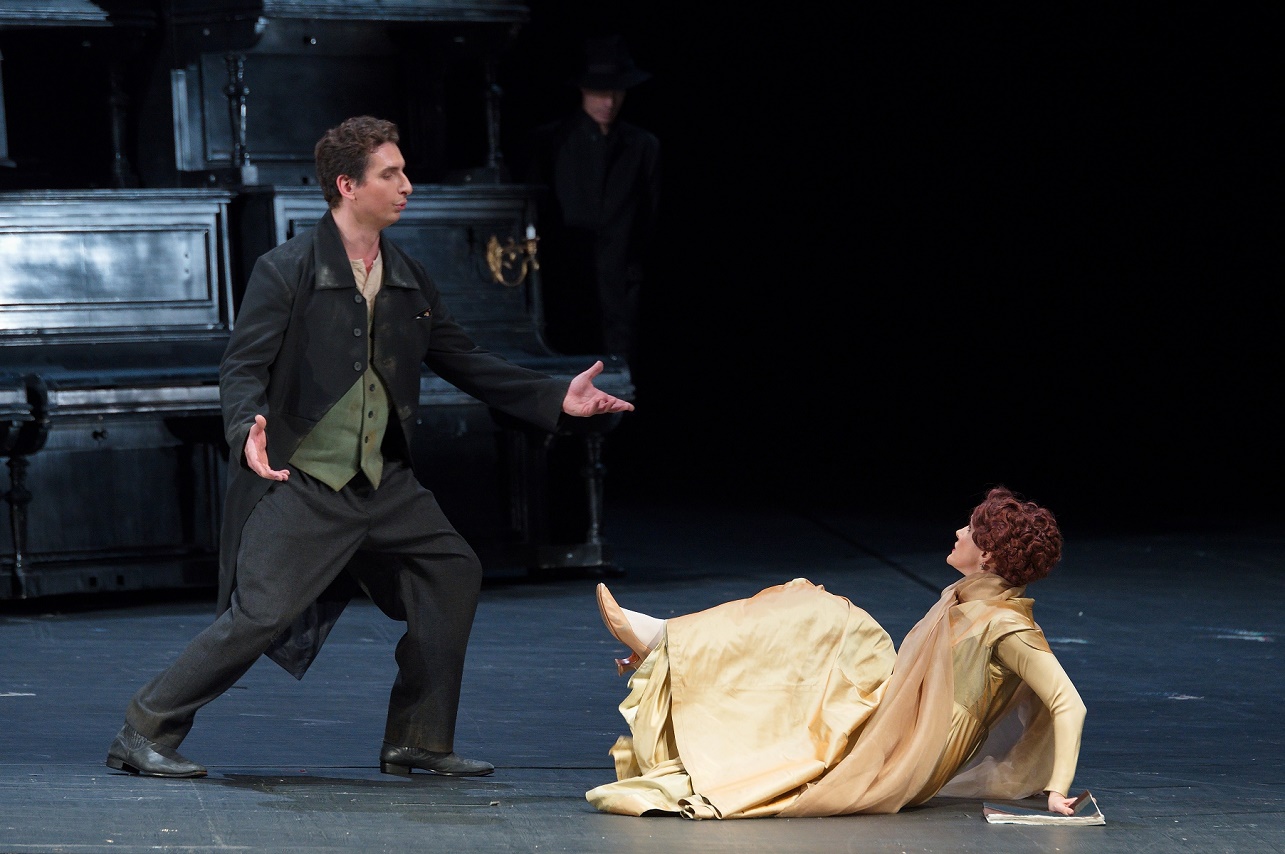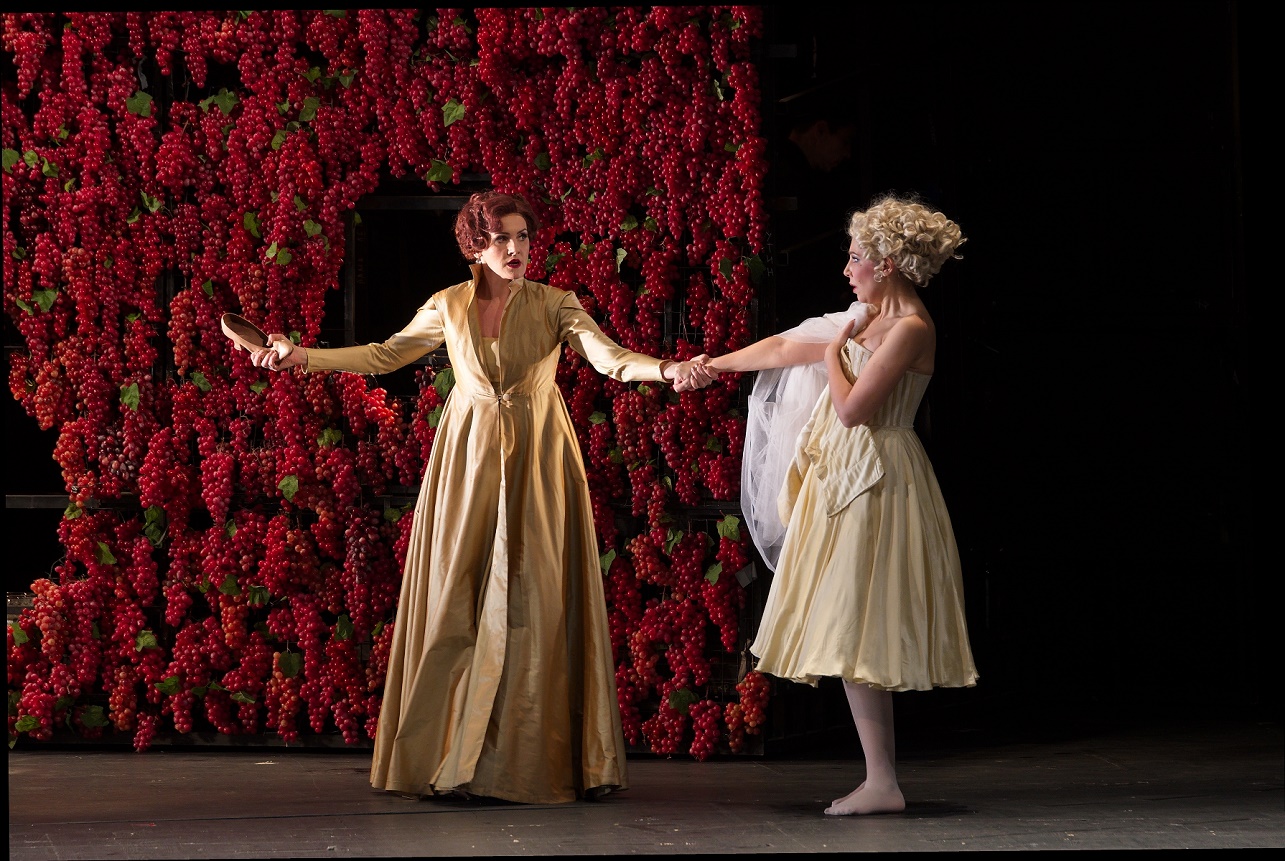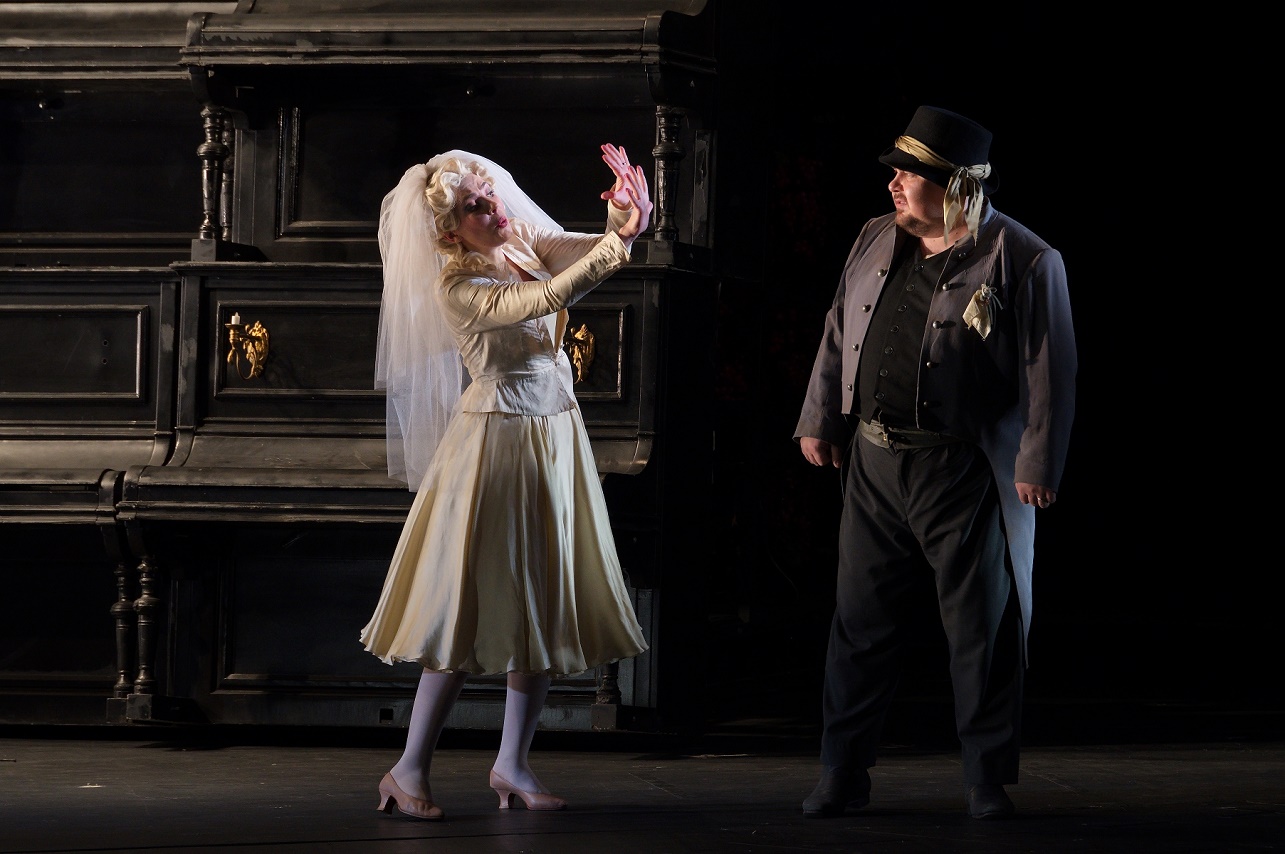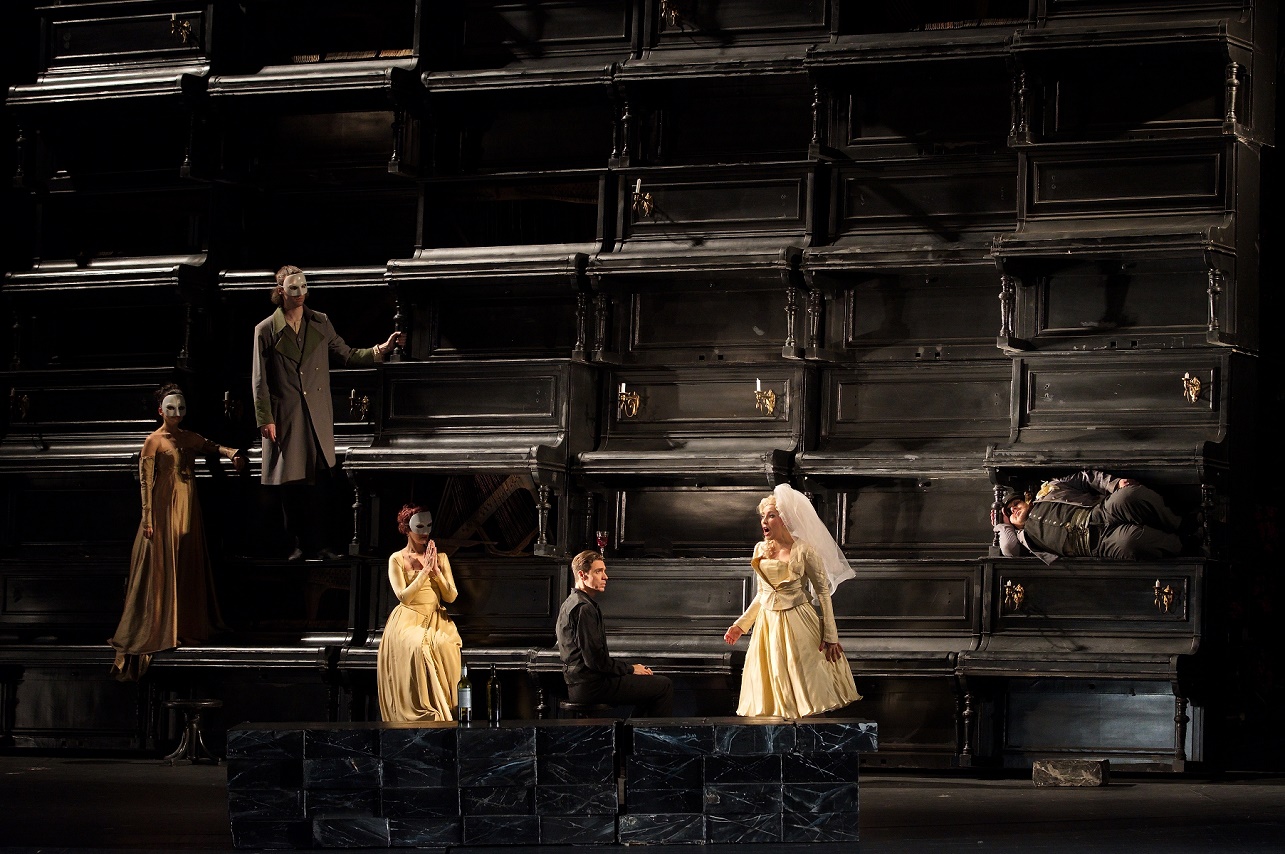Wolfgang Amadeus Mozart defined the genre of his Don Giovanni as dramma giocoso, that is, or humorous drama. Unless considered as a term for a specific genre, it is a perfect oxymoron. Indeed, Don Giovanni contains more mysteries and contradictions than any other opera. It mixes together fancy and reality, masks and real faces, sensitivity and cold moral admonition. It is hard to understand where one of the oppositions ends and the other begins. Mozart and his librettist Lorenzo da Ponte created Don Giovanni for Prague, where it premiered in 1787. The local audiences greeted Mozart’s new work with a frenzy. The subsequent production in Vienna did not have such an enthusiastic response. The Emperor Joseph II noticed that “…this is no treat for my Viennese…”. He could hardly have imagined then that the attempts to unravel Don Giovanni would be endless. Today, two and a half centuries after its premiere, Mozart’s Don Giovanni remains an unsolved operatic enigma.
Opera
16+ 16+Don Giovanni
Creative Team
Summary
ACT 1
Don Giovanni under cloud of night leaves Donna Anna’s room. Anna’s father, the Commander, stops him. Don Giovanni kills him in the duel and runs
away together with his manservant Leporello. Donna Anna’s suitor, Don Ottavio, swears revenge on the killer. Don Giovanni feels another woman’s approach. But this stranger happens to be his wife Donna Elvira, whom he had abandoned. Leporello presents to her a voluminous manuscript – Don Giovanni’s life story and a list of his amorous victories. Don Giovanni and Leporello run across a merry company. It is Masetto and Zerlina’s wedding
party. Don Giovanni invites everyone to his house. Leporello leads Masetto away and Don Giovanni remains tête-à-tête with Zerlina. He tries to
seduce her but gets frustrated by an unexpected appearance of Donna Elvira. A chance brings together Don Giovanni, Donna Anna, Don Ottavio, and Donna Elvira. Donna Elvira openly rebukes Don Giovanni with infidelity, but he claims her words to be a result of love madness. Donna Anna tells Don Ottavio that it was Don Giovanni who killed her father. Don Ottavio, Donna Anna, and Donna Elvira appear at the festivities in Don Giovanni’s house. Their faces are hidden under masks. Zerlina’s cry is heard from afar. Don Giovanni accuses Leporello of an attempt at the maiden’s honor but nobody believes his words.
ACT 2
Don Giovanni attempts to thread his way into Donna Elvira’s house, except not for her sake but for her maidservant’s. Don Giovanni lures Donna
Elvira from her house for a date. The deceived Donna Elvira gets trapped in Leporello’s arms. Don Giovanni, dressed as a servant, runs across Masetto and his friends who are resolved to retaliate against the hated Don Giovanni. The sham Leporello undertakes to assist them. Having sent different pursuers away in different directions he wholeheartedly beats Masetto up. Zerlina arriveson time only to comfort her unfortunate suitor. At the same time, the real Leporello tries to get away from Donna Elvira. In darkness, they run across Donna Anna and Don Ottavio; Masetto and Zerlina also happen to be there. The pursuers imagine they have tracked Don Giovanni out but it is Leporello who appears before them instead. Don Giovanni and Leporello reunite at the graveyared near Commander’s tomb. Don Giovanni asks the Commander to dinner. The Commander agrees. Don Ottavio reassures Donna Anna that the scoundrel is going to be punished soon, but his words bring no relief to her suffering. Donna Elvira comes to Don Giovanni. She tries in vain to bring him back to the way of righteousness. The Commander appears and draws Don Giovanni down to the infernal regions. The surviving characters proclaim the triumph of righteousness over vice, while Leporello goes away in search for a new master and a new hero for his memoires.







